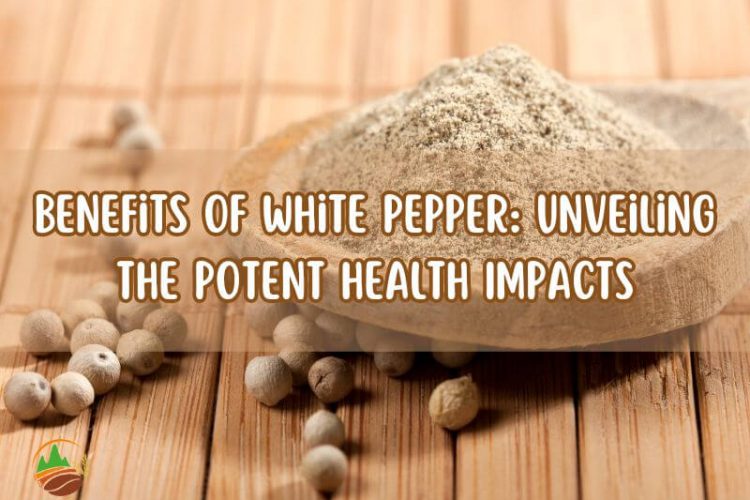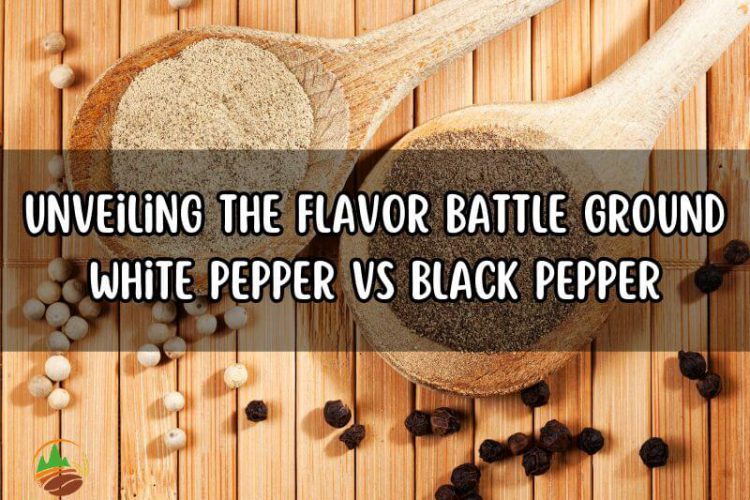Discover the top 5 organic cinnamon benefits that you need to know. From promoting heart health to boosting immunity, this article highlights the incredible advantages of incorporating organic cinnamon into your lifestyle. Explore the power of this natural spice and enhance your well-being today.
Table of contents
The special characteristics of organic cinnamon in the market
Organic cinnamon has several special characteristics that differentiate it from regular cinnamon on the market:
- Purity: Organic cinnamon is grown with no synthetic pesticides, herbicides, or fertilizers. It is free from GMOs and other artificial additives, giving it a natural, pure taste and aroma.
- Sustainably Produced: Organic cinnamon products wholesale farming methods are better for the environment, promoting biodiversity, and maintaining soil quality.
- Health Benefits: Organic cinnamon is known for its antioxidant, anti-inflammatory, and anti-diabetic properties. It is believed to be healthier than non-organic varieties, which may carry residues of chemicals used in conventional farming.
- Traceability: Every pack of organic cinnamon can be traced back to the specific farm where it was grown, ensuring transparency and accountability.
- Quality and Flavor: Numerous individuals have conveyed that when it comes to flavor and quality, organic cinnamon distinctly outclasses its non-organic counterparts. This enhanced taste is often described as being richer, more robust and fresher.
- Certification: Organic cinnamon must meet rigorous standards to earn organic certification. This ensures that it meets certain quality and environmental standards.
- Pricing: Organic cinnamon is usually priced higher than regular cinnamon, reflecting the extra effort and careful cultivation methods used in its production.
Organic cinnamon stands out in the market due to its purity, sustainability, health benefits, traceability, superior quality and flavor, organic certification, and premium pricing. Free from synthetic substances and GMOs, it promotes biodiversity and soil health, offers antioxidant, anti-inflammatory, and anti-diabetic attributes, and can be traced back to its original farm. Its rich flavor, rigorous certification, and higher pricing are reflective of the careful cultivation methods employed in its production.

Different types of organic cinnamon in the market nowadays
Let’s explore the list below about familiar products made from organic cinnamon:
- Organic Cinnamon Powder: This is made by grinding cinnamon sticks into a fine powder. It’s used in various recipes, teas, and home remedies for its warm, spicy flavor and potential health benefits.
- Organic Cinnamon Sticks: These are the dried bark of the cinnamon tree, typically rolled into quills. Organic cinnamon sticks are used to infuse flavor into dishes, beverages, or stewed fruits.
- Organic Cinnamon Oil: This essential oil is distilled from the bark, leaves, or twigs of the cinnamon tree. It’s used in aromatherapy, massage, flavoring food, and occasionally in natural health remedies.
- Organic Cinnamon Broken: These are pieces of broken cinnamon sticks. They are often used in much the same way as whole sticks, but they infuse flavor more quickly because of their increased surface area.
- Organic Cinnamon Extract: This liquid extract is used for culinary purposes and in natural health remedies.
- Organic Cinnamon Bark Essential Oil: This oil is steam-distilled from the bark of the cinnamon tree and is often used in aromatherapy and for topical applications.
- Organic Cinnamon Leaf Essential Oil: Distilled from the leaves of the cinnamon tree, this oil has a different chemical profile and thus different uses than the oil from the bark.
Always remember to use organic products responsibly and seek advice from a health professional if you’re considering them for medicinal purposes.

Top 5 organic cinnamon benefits that we should know
Organic cinnamon, known for its distinctive aroma and flavor, offers a range of potential health benefits. From its anti-inflammatory properties to its support for heart health, cinnamon provides a variety of reasons to incorporate it into our lives. As a spice with remarkable medicinal qualities, here are the top five organic cinnamon benefits that we should know.
Organic cinnamon benefits in blood sugar regulation
Organic cinnamon has several potential benefits for blood sugar regulation:
- Improved Insulin Sensitivity: Cinnamon can increase insulin sensitivity, which helps cells better respond to insulin and move glucose to cells more efficiently, reducing blood sugar levels.
- Lower Glucose Levels: Cinnamon can slow the breakdown of carbohydrates in the digestive tract, reducing the amount of glucose that enters the bloodstream, which helps prevent spikes in blood sugar.
- Glucose Metabolism: Some studies have indicated that cinnamon can act like insulin and directly assist in glucose metabolism.
- Post-meal Sugar Control: Consuming cinnamon can lower fasting blood sugar and improve glycemic control after meals.
Cinnamon can help control blood sugar levels, but it should be used with a healthy diet, regular exercise, and, if necessary, medical treatment for the best results. Before starting a new supplement plan, you should always talk to your doctor or another health professional.

Antioxidant properties of organic cinnamon
Organic cinnamon has a lot of antioxidants, which keep the body from getting hurt by free radicals. Polyphenols, flavonoids, and phenolic acids are the three main types of antioxidants in cinnamon. These compounds help reduce inflammation and boost the immune system. They may help prevent heart disease, diabetes, and cancer, among other health problems. In terms of antioxidant activity, cinnamon is even better than many other spices and herbs. Cinnamaldehyde, which is found in cinnamon, has also been shown to be able to work as a natural antioxidant. Last but not least, organic cinnamon can help control blood sugar and improve brain function.

The benefits of organic cinnamon as an anti-inflammatory
Organic cinnamon has several potential anti-inflammatory benefits:
- Antioxidant properties: Cinnamon contains potent antioxidants, such as polyphenols, which help reduce oxidative stress and inflammation.
- Anti-inflammatory compounds: Cinnamaldehyde, a key component in cinnamon, has been found to inhibit inflammation.
- Reducing the risk of heart disease: Cinnamon might lower the risk of heart disease by reducing inflammation.
- Alleviating symptoms of inflammatory conditions: It may help alleviate symptoms of certain inflammatory conditions, such as arthritis.
- Enhancing brain function: By reducing inflammation, especially in the neurological system, cinnamon may improve cognitive function and reduce the risk of neurodegenerative diseases.
It should be noted that while there are a lot of organic cinnamon benefits, we should not replace cinnamon to traditional medical treatments for inflammatory conditions. Always consult with a healthcare professional for medical advice.

How organic cinnamon supports heart health
Organic cinnamon supports heart health in several ways such as:
- Studies have shown that cinnamon may play a big role in lowering blood pressure, which can lower the risk of getting heart disease.
- It could help lower total cholesterol, “bad” LDL cholesterol, and triglyceride levels while keeping “good” HDL cholesterol levels the same.
- Controls Blood Sugar: Cinnamon has been looked at as a possible way to treat and prevent diabetes by making the body more sensitive to insulin and lowering blood sugar levels.
- Anti-inflammatory Properties: Inflammation that lasts for a long time makes heart disease more likely. Strong anti-inflammatory properties in cinnamon may help lower the risk of heart disease.
- Organic cinnamon benefits antioxidants: Antioxidants found in organic cinnamon help prevent heart disease by defending cells from damage caused by free radicals and reducing inflammation.
As always, incorporating cinnamon as a part of a balanced, healthful diet rather than relying on it solely for heart health is recommended. Plus, it is important to discuss any dietary changes or supplements with a healthcare provider to ensure they don’t interact with other medications or health conditions.

How organic cinnamon can improve brain function
Organic cinnamon can potentially improve brain function through several mechanisms:
- Antioxidant Effect: Cinnamon is loaded with antioxidants, which help protect the brain from oxidative stress and reduce inflammation, factors implicated in brain aging, and neurodegenerative diseases like Alzheimer’s and Parkinson’s.
- Reducing Insulin Resistance: Cinnamon can improve sensitivity to the hormone insulin, which helps regulate metabolism and energy use in the body. Poor insulin signaling has been implicated in brain conditions like Alzheimer’s.
- Inhibiting Neurodegenerative Diseases: Cinnamon contains two compounds, cinnamaldehyde and epicatechin, that inhibit the buildup of a protein called tau in the brain, which is one of the hallmarks of Alzheimer’s disease.
- Neuroprotective Properties: Some animal studies suggest that cinnamon extracts can protect neurons from damages, stabilize neurotransmitter levels, and improve motor function.
- Improved Cognitive Processing: Certain studies indicate that the scent of cinnamon can improve processing speed, memory, and attention.
However, it’s important to note that many of these studies have been conducted on animals or in test tubes, meaning their relevance to human health isn’t fully established. Overconsumption can lead to various health problems, so it should be used in moderation. Always consult medical professionals for personalized advice.

Some precautions and considerations when using organic cinnamon
While organic cinnamon can offer health benefits, it’s important to consider a few precautions and considerations when using it:
- Allergies: Some people may have allergic reactions to cinnamon or be allergic to it. If you know you’re allergic to cinnamon or something similar, it’s best not to eat or use it and instead look for other options.
- Coumarin content: Cinnamon naturally contains a compound called coumarin, which in high amounts may be toxic to the liver. However, the coumarin content varies between different types of cinnamon. There are two types of cinnamon, which are cassia cinnamon and ceylon cinnamon. Excessive consumption of the cassia cinnamon over prolonged periods may pose a risk. If you are concerned about coumarin intake, consider opting for Ceylon cinnamon.
- Blood-thinning effects: Cinnamon has mild blood-thinning properties. While this can be beneficial for some individuals, it may interact with certain medications that also thin the blood, such as anticoagulants or antiplatelet drugs. If you are taking any blood-thinning medications, consult with your healthcare provider before significantly increasing your cinnamon intake to avoid potential interactions.
- Pregnancy and breast-feeding: While small amounts of cinnamon used in cooking generally considered safe during pregnancy and breastfeeding, it’s advisable to consult with a healthcare professional before using concentrated cinnamon supplements or consuming it in large amounts.
- Potential interactions with medications: Cinnamon, particularly in concentrated supplement form, may interact with certain medications, including diabetes medications, blood pressure medications, and liver medications.
- Moderation and variety: Like any food or spice, cinnamon should be consumed in moderation as part of a balanced diet. While it offers potential benefits, it should not be relied upon as a sole treatment for any health condition. It’s always advisable to prioritize a diverse range of nutrient-rich foods and consult with a healthcare professional for personalized advice.
Remember, individual experiences and sensitivities may vary. It’s best to consult with a healthcare professional or registered dietitian if you have specific concerns or questions about incorporating organic cinnamon into your diet or using it for therapeutic purposes.

How to buy organic cinnamon around the world
To buy organic cinnamon around the world, you can consider the following options:
- Local health food stores: Many health food stores carry a variety of organic spices, including cinnamon. Check with your local health food store to see if they stock organic cinnamon or if they can order it for you.
- Organic food markets and co-ops: Look for organic food markets or cooperatives in your area. These types of establishments often have a wide selection of organic products, including spices like cinnamon.
- Online retailers: There are numerous online retailers that specialize in selling organic products, including spices. Websites like Amazon, Thrive Market, and iHerb often have a variety of organic cinnamon options available for purchase and can deliver to different countries worldwide.
- Specialty spice shops: Specialty spice shops or gourmet stores may carry high-quality organic cinnamon. These stores often have a wider selection of spices and can provide information about the source and quality of their products.
- Farmer’s markets: Visit local farmer’s markets, especially those that have organic produce sections. Some farmers may sell their own spices, including organic cinnamon, at these markets.
Hoan Nghia Cinnamon, a reputable Vietnamese cinnamon supplier, offers high-quality and aromatic cinnamon products, adding a distinctive warmth and sweetness to every dish and beverage. You can search for this supplier on the internet for more information and contact them through WhatsApp (+84 961 504 190) to receive updates.






